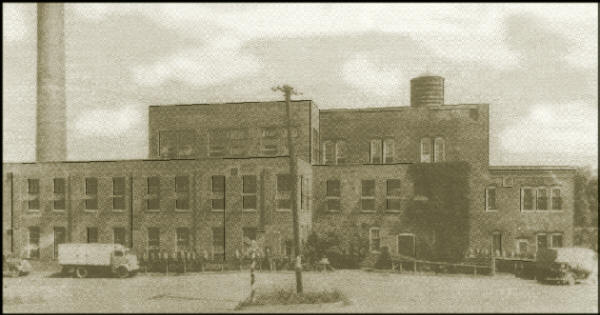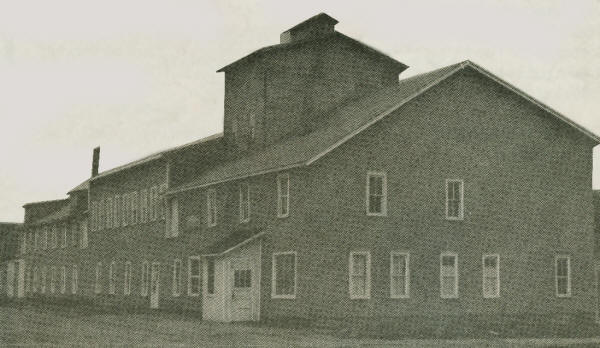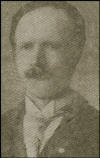|
|
|
Clark County Press, Neillsville, WI December 2, 1993, Page 28 Transcribed by Dolores (Mohr) Kenyon. Index of "Good Old Days" Articles
|
|
|
|
Clark County Press, Neillsville, WI December 2, 1993, Page 28 Transcribed by Dolores (Mohr) Kenyon. Index of "Good Old Days" Articles
|
Good Old Days
By Dee Zimmerman
Some Businesses in Neillsville’s past…
After the logging and timber boom diminished, Clark County became the center of a new industry – dairying.
Two businesses developed because of the milk production by area farms. Neillsville Milk Products plan on West Seventh Street, and the American Stores Dairy Company plant on the banks of O’Neill Creek at Hewett Street served the community for several years.
The Neillsville Milk Products, at its peak production, had an intake of more then 700,000 pounds of milk daily, which it made into Pine Valley Brand butter, cheddar cheese, roller-dried milk and buttermilk powder.
In 1916, the Oatman Condensed Milk Company purchased land along O’Neill Creek from Mr. and Mrs. W. L. Hemphill and established a condensing plant. A pioneer in that business was also the site of the pioneering grist mill in Neillsville’s first years as a city.
|
The Oatman Condensed Milk Company plant, established in 1916, located on the corner of Hewett and Eight Streets, bordered by O’Neill Creek on the north side. Oatman operated the plant until September 1919, when a subsidiary, Neillsville Condensed Milk Company deeded the property. |
Oatman operated the plant producing the Dundee brand evaporated milk until September 1919, when it deeded the property to a subsidiary, the Neillsville Condensed Milk Co.
Finally, on April 28, 1928, Neillsville Condensed Milk Co. was sold to the American Store Dairy Co. American Store Dairy Co. bought the company’s receiving plant in Granton from which milk had been brought to the Neillsville plant for several years.

|
Purchased by the American Stores Dairy Company on April 29, 1928, some modernized changes were in the plant building. The condensed milk product brand name was changed to Asco. |
|
Neillsville Condensed Milk Products building was located along O'Neill Creek, now site of the Fire Hall. The aerial view, circa 1940, included the American Legion Hall and parking lot, as well as the partially visible James O'Neill House. Hewett and Eighth Streets joined by the condensary. |
Seven years prior to the sale the American Stores Co., a Philadelphia based firm, had been a major consumer of the Neillsville Condensed Milk Co. That was probably the reason for their eventual purchase of the firm.
The management remained the same: Pat Bingham, who had been an overseer of the Neillsville Condensed Milk Co. plant for the Oatman Condensed Milk Co., kept that position with American States (Stores) Co. Roy E. Schmedel, who transferred to Neillsville in 1927 to manage the Neillsville plant, was continued in that position. American Stores Dairy sold the condensed milk under the Asco brand. They were early leaders in developing the market for their product to the eastern states, winning recognition from its consumers.
By developing its service as a processor and as an efficient retailer, the organization created a short cut from producer to consumer, directly to the householder. That system reduced the cost factor which benefited the farmers as well as the Condensery, insuring them a better return for their product.
The World War II period marked the peak of production for the Condensery. Canned milk was more easily transported than fresh milk as it didn’t need the refrigeration, a great factor in its sales and availability. There were approximately 35 to 40 employees during the early 1490’s (1940’s).
Remember that was the time of baby’s formula being made by mixing condensed milk with water and some syrup which had to have helped the demand for condensed milk.
B & F Machine Shop, of Neillsville, owned and operated by Max Feuerstein and Earl “Slim” Bruhn, pioneered the first insulated truck bodies required for hauling Grade “A”: milk for the Condensery. The word of their abilities spread, as they received orders from other companies within the state and out-of-state.
The other large milk plant Neillsville Milk Products Cooperative, was started by farmers in the area in 1934 with 100 patrons. The first three years showed a tremendous growth.
Its officers were: Fred Hrach, president; Bernard Dodte, vice president; Rudolph Wagner of Neillsville, Andrew Lewis of Loyal and a. M. Worchel of Granton, directors; Frank A. Viergratz, manager and Hubert H. Quicker, assistant manager.
On, May 1, 1963, the Neillsville Milk Products Cooperative made a decision to purchase the American Stores Dairy Co. plant. That decision was made with the dreams of producing A-sterile milk, which was being promoted as a great development in the manufacturing of milk because of its keeping quality without refrigeration.
A-sterile milk failed to live up to its promise, and the Neillsville Milk Products Cooperative was unable to find a sufficient market for its evaporated product.
The Neillsville Milk Products Cooperative manufactured butter, cheese, evaporated milk and buttermilk powder until Jan. 28, 1966, when it announced it was closing down much of its operation here and sending milk to the Owen plant of North Central Dairymen’s Cooperative. That marked the end of the local cooperative.
The business had operated for a span of nearly 50 years. Ever changing markets determines survival or non-survival in most businesses.
After the end of World War I, two canning plants were started. One, the larger, was operated under the ownership of J. B. Inderrieden Co. and the other was the Rowland Canning Co. The Clark County Canning Co. operated in the old Neillsville Brewery building at the east end of Seventh Street. In Inderrieden plant was located in what was later the Neillsville Ware-house Co. building at the corner of West Eighth and Clay Streets.
Peas were the principle crop canned by both plants. At its peak the Inderrieden plant had 1,342 acres of peas under contract and canned about 80,000 cases. During peak production, the plant employed from 150 to 200 persons.
The Inderrieden plant operated until 1939.

| The Neillsville Canning Company owned by the J. B. Inderrieden Company, operated in the building at the corner of West Eighth and Clay Streets, through 1939. |
Rowland Canning Co., successor to the Clark County Canning Company was operated by M. J. Rowlands, the son-in-law of T. H. Slinger, who established the original company. At the close of its operations in 1937 Rowlands Canning Co., employed 75 people, working three shifts.
Both canning companies ceased operations before 1940.
At the end of World War II, an opportunity arrived for which Los. Weidenhoff, Inc., had prepared when it established the Neillsville branch of an automotive electrical testing factory. A civilian enterprise, with its output in strong demand by the automotive trade, the business welcomed the chance that peace time brought. With the availability of materials for civilian production, the output was rapidly stepped up. Electrical equipment produced in the Neillsville plant moved continually into the channels of automotive trade.
The Neillsville Branch of Weidenhoff, Inc. was labeled as makers of Automotive and Aviation test Equipment and Battery chargers.
William Yenni transferred from the Chicago-based plant where he had served as president of the Weidenhoff Co., to be manager of the Neillsville operation.
When Weidenhoff moved their operation from Neillsville to Algoma, Iowa in 1954, Yenni resigned and started Auto Test, Inc with the backing of two partners.
At the peak of Auto-Test’s business, 55 people were employed. It continued operations through three successive ownerships and in 1981, was disbanded.

|
J. B. Weidenhoff, Inc., a Chicago-based electrical testing manufacturer, established a factory at the former Neillsville Canning Company site in 1944. Its president William H. Yenni came to Neillsville to fill the manager’s position. It operated until 1954, when it moved to Algoma, Iowa. The company chose to move to Algoma, Iowa where they owned a plant building. They rented the building in Neillsville. As Weidenhoff moved out, Yenni resigned and started Auto-Test, Inc. in the same building. |

|
Unger’s Shoe Store, founded by Anton Unger, established in 1893, was operated continuously by the same family for over 50 years. The store relocated to 422 Hewett Street in 1907. An advertisement of their store stated, “From the time when a good many shoes were made by hand to the present-day wholesale manufacturing and merchandising, we have been selling footwear.” |
|
© Every submission is protected by the Digital Millennium Copyright Act of 1998.
Show your appreciation of this freely provided information by not copying it to any other site without our permission.
Become a Clark County History Buff
|
|
A site created and
maintained by the Clark County History Buffs
Webmasters: Leon Konieczny, Tanya Paschke, Janet & Stan Schwarze, James W. Sternitzky,
|